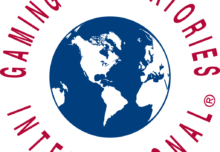In a year Russia will end up having only two state lotteries with alleged beneficiary in the person of Armen Sarkisyan, the son-in-law of Iosif Ordzhonikidze, the former vice-mayor of Moscow.
The draft law has been developed as per instructions of the First Deputy Prime Minister Igor Shuvalov. The rationale is that the industry is criminalized, the state budget is receiving 10 times less in revenues than it could do: 1 billion instead of 10 billion rubles annually.
Despite the modest size of the Russian lottery market (actual volume amounts to 10 billion rubles), as of June 2011, Russia had 197 organizer companies that held 455 national non-state lotteries. According to “Vedomosti”, most of them are chronically unprofitable and the highest profit margin of 5.3% is observed in lottery companies owned by Oleg Boyko, president of Finstar investment holding.
According to Boyko, most of the lottery companies are stealing from the prize money, many companies are guilty of transferring the mandatory 10% to their captive funds.
Boyko believes the situation can be fixed only by limiting the number of licenses to 4-5 to be issued to “transparent companies that have the most to lose in terms of reputation and money”. Boyko estimated that the network will require $50-70 million in investments.
Such investments are quite affordable for Boyko, so it is not surprising many felt that the impending lottery reform was intended in the interest of Boyko. The reason was an Accounts Chamber report stating that all the operators and distributors of state lotteries were, in one way or another, connected with Boyko.
Earlier Boyko and his partners were major players in Russia’s gambling market. In 2007 Forbes estimated Boyko’s fortune at $1.5 billion, but the same year Boyko and his partners had a losing streak due to the adoption of the law that banned operations of casinos and gaming halls starting from July 2009. After that “Vulkan“ gambling halls owned by Boyko installed the lottery machines outwardly indistinguishable from slot machines. The business was troublesome but nonetheless profitable.
Of the three state lotteries – “Sportloto” (organized by the Ministry of Finance), “Gosloto” (the Ministry of Sports) and “Pobeda” (“Spetsstroy”) – only the latter is operated by Boyko. So all this talk that his friend Igor Shuvalov allegedly wants to reshape the market in the interest of Boyko is nonsense.
Moreover, Boyko states he sold the “Russkoye Loto” trademark and the patented lottery technology to the Gosloto group of companies – the largest lottery seller in Russia, currently the sole seller of all three state lotteries accounting for 60% of the draw lottery market in 2012, or about 6 billion rubles.
President of GC “Gosloto” Topilin said the sole beneficiary of GC “Gosloto” is its president Armen Sarkisyan, a 34-year-old businessman. They say Sarkisyan is married to Yekaterina Ordzhonikidze, daughter of Iosif Ordzhonikidze who oversaw a gambling and hotel business in Moscow until 2007.
Sarkisyan told: “We fully support the position of the state, because today it is the only way to develop the lottery industry and increase the state budget revenues. We believe that the commercial lotteries have already shown themselves over the past 20 years, when there were no state licenses“.
The federal official believes that the speculations about the monopoly are totally unfounded: “The future law, if it is adopted, provides that only the organization of lotteries is assigned to the Ministry of Finance and the Ministry of Sports. And the operators will be selected at the competitions. Sarkisyan’s companies can lose such competitions, in which case Sarkisyan will be left with Gosloto [distributing others’ lotteries]”.


